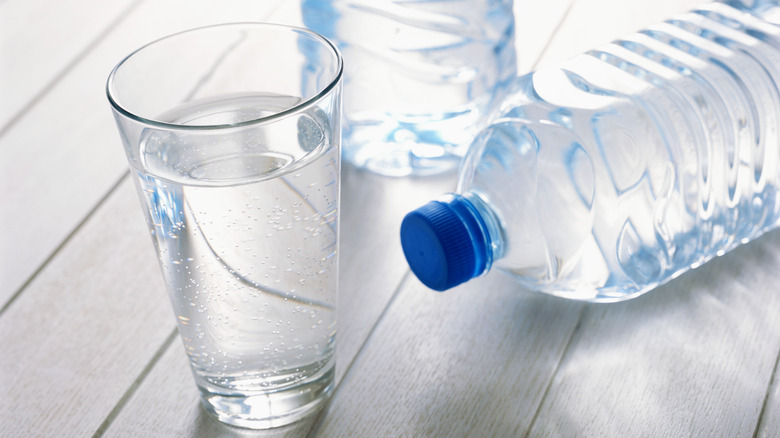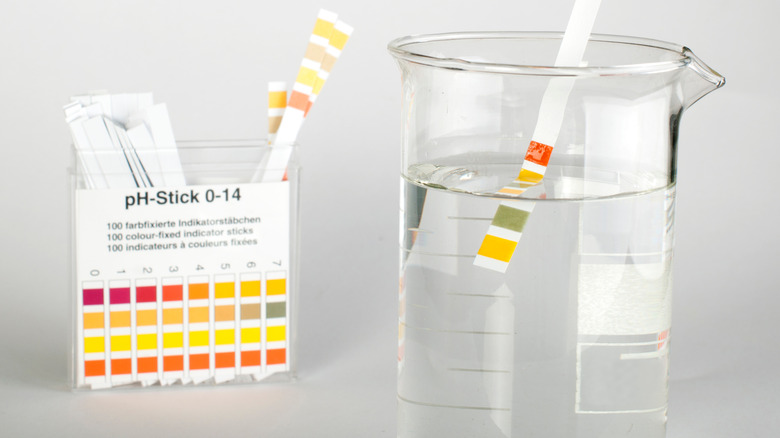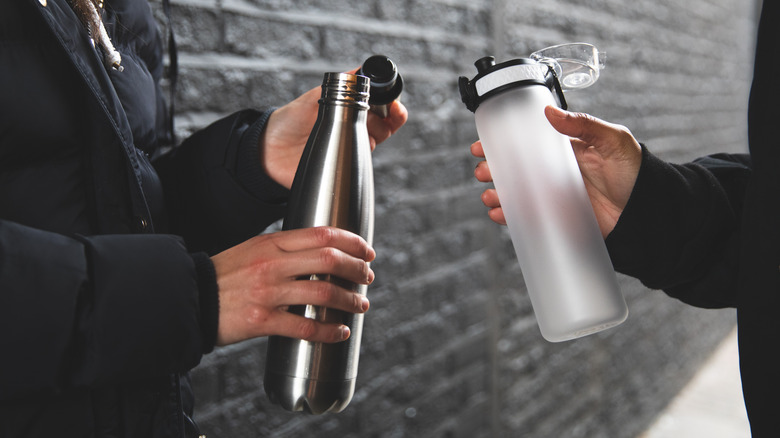The Biggest Myth About Alkaline Water You Should Stop Believing
Most everyone wants to do what is best for their bodies, and staying hydrated by drinking plenty of water is key. Depending on sex, environment, and activity levels, people need just under a gallon of water a day, give or take a few cups. Most of this will come from water and other fluids, but around 20% will come from food, according to the Mayo Clinic. For some, this may seem like a huge amount of water to consume, so you might be tempted to buy alkaline water — which claims many health benefits including being more hydrating than regular water. The reality is that these claims are completely unfounded.
Alkaline water companies have also advertised that their water improves skin health, aids digestion, has disease-preventing qualities, and increases energy. Being well hydrated does have many positive effects on overall health, but there is no evidence to suggest that drinking alkaline water is any better for you than regular water. This is nothing more than marketing that allows companies to sell this bottled alkaline water at a higher price point because of these purported advantages. The Food and Drug Administration has actually gone so far as to ban claims of health benefits from drinking alkaline water until further research has been done to substantiate limited findings.
What even is alkaline water?
The pH scale measures how acidic or basic a substance is with 0 being the most acidic and 14 being the most basic. Regular tap water typically measures at a pH of seven, making it neutral. To make water alkaline, it goes through a mechanical process in an ionizer called electrolysis that changes its pH to eight or higher, making the water less acidic. According to Healthline, "Alkaline water must also contain alkaline minerals and negative oxidation-reduction potential (ORP). ORP is the ability of water to act as a pro- or antioxidant. The more negative the ORP value, the more anti-oxidizing it is." On the other hand, spring water that comes in contact with lots of rocks and minerals is naturally more alkaline without going through any sort of extra processing.
Some scientists have suspicions that regularly drinking alkaline water could cause some negative side effects, but overall, there isn't substantial evidence to confirm that. So if you have been consuming alkaline water, don't worry — it is most likely safe to drink (per Healthline).
What can you do to increase your hydration?
Since alkaline water doesn't have the benefits that it purports to have, how can you boost hydration? The absolute best foods to effortlessly boost hydration are water-rich fruits and vegetables and brothy soups. Celery, lettuce, cucumbers, tomatoes, watermelon, and strawberries are all great, as is that comforting bowl of chicken noodle soup.
There are lots of additives that are touted as hydrating additions to water, but the Cleveland Clinic notes that "what matters most is the amount of water you drink, not the type you drink." So feel free to trick yourself into better hydration by reaching for seltzer.
Instead of directing your energy towards trying to hack water, focus on finding water-drinking routines that work for you. Some people love keeping a reusable water bottle with them, especially one with a straw for easy drinking or an insulated lining to keep water at the perfect temperature. Others use reminders or a daily goal to keep themselves on track. Combine these two methods by using a container large enough to hold the amount of water you need to drink in a day, so you can see your progress as you sip. As long as you give your body the hydration it needs, it will do all the hard work for you — no alkaline water needed.



